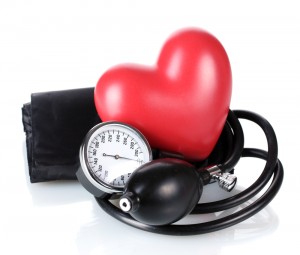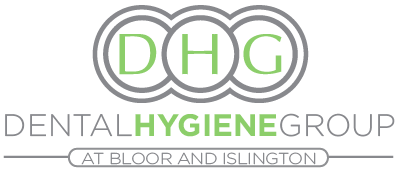A simple blood pressure check could reveal a health problem you didn’t even know about. It also helps us provide you with better and safer dental hygiene care.
For those of you that don’t quite understand how to interpret a blood pressure reading let’s start by defining what the numbers of your blood pressure refer to.

• The top number or systolic pressure is the amount of pressure in your arteries during the contraction of your heart muscle.
• The bottom number or diastolic pressure is the lowest pressure in an artery in the moments between beats when the heart is resting.
Note that blood pressure readings are expressed as “millimeters of mercury,” which is abbreviated as “mm Hg.” So a reading would be xxx/xx mm Hg.
Now that we know what the numbers mean, what is considered normal?
In order for the reading to be considered normal the top number should be lower than 120 and the bottom number should be lower than 80.
When should you worry?
Any numbers higher than 120/80 should be a red flag that perhaps your habits should be adjusted to be more “heart-healthy”. The severity depends on which stage you fall under.
120-139 systolic AND/OR 80-89 diastolic – Prehypertension
Although technically not considered high blood pressure you’ve definitely moved out of the normal range. In this stage it is important to change dietary and exercise habits to lower the numbers.
140-159 systolic AND/OR 90-99 diastolic – Hypertension Stage 1
In this range you will probably be diagnosed with high blood pressure and may be placed on a prescription and lifestyle change regime to help control it.
160-179 systolic AND/OR 100-109 diastolic – Hypertension Stage 2
At this stage there is a high chance that your doctor will be recommending one or more medications to control your blood pressure.
180+ systolic AND/OR 110+ diastolic – Hypertensive Crisis AKA: Danger Zone
If your blood pressure measures at this level your Dental Hygienist will likely take a second reading after a few minutes. If the next reading is high you require emergency treatment as it could be an indication of heart attack, or some type of cardiac episode.
So why should your Dental Hygienist take your blood pressure at every visit?
The reason we take your blood pressure is simple, it’s because blood pressure is related to your health and we are health professionals.
Your oral health is directly related to your overall health and we have an obligation as part of your healthcare team to do our best for you.
As Registered Dental Hygienists we are trained to include blood pressure screening as part of our assessment. It is imperative that it is not omitted as we are one of the health care professionals that you may see the most often. Because we see many of you 2-4 times per year we are in the optimal position to screen for hypertension and other general health problems.
Here at The Dental Hygiene Group we believe that in order to provide comprehensive treatment, monitoring of blood pressure and referrals to other health care provider when appropriate is the only way to function. The mouth is not a separate entity and the connection it has to the rest of the body is both dynamic and important. Also, if we are not addressing symptoms of possible systemic complications then we cannot fully treat the oral condition(s) as well.
Blood pressure changes during the day. It is lowest when you sleep and rises when you get up. It also can rise when you are excited, nervous, or active. There is also what is known as “white coat syndrome”. We understand these elements and take all of the factors into account, we also realize that one elevated reading is not a diagnosis of a problem but multiple high readings are worth seeing a physician about.
At the same time, hypertension is an important factor in dental care, especially if you are on regulating medication. Many anti-hypertensive drugs have side effects, such as dry mouth, that can affect your oral health.
Your readings may have an immediate effect on your appointment
If your blood pressure readings are in stage 1, we will proceed with your regular scheduled dental hygiene appointment, but we will also be asking to recheck the readings throughout your visit.
In stage 2, we will asking you to reschedule your dental hygiene appointment until you have followed up with your medical doctor and your blood pressure is stabilized.
If at your appointment your blood pressure is reading in stage 3, we will not only be asking you to reschedule your dental hygiene appointment but we will also be insisting that you seek emergency treatment as this may be a sign of a cardiac episode.
We hope that you find value in this service and have a better understanding of the importance of regular blood pressure screenings.

Recent Comments